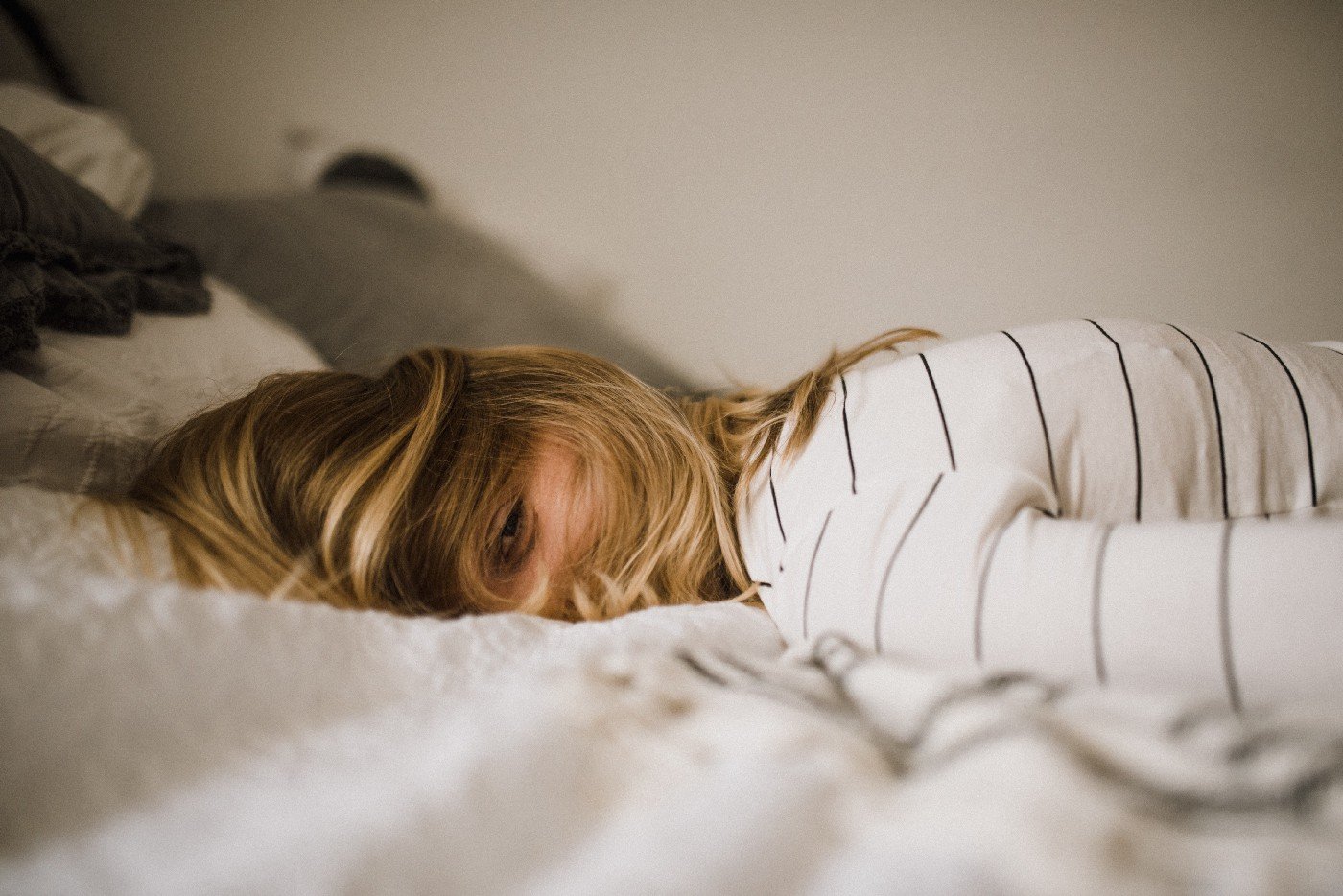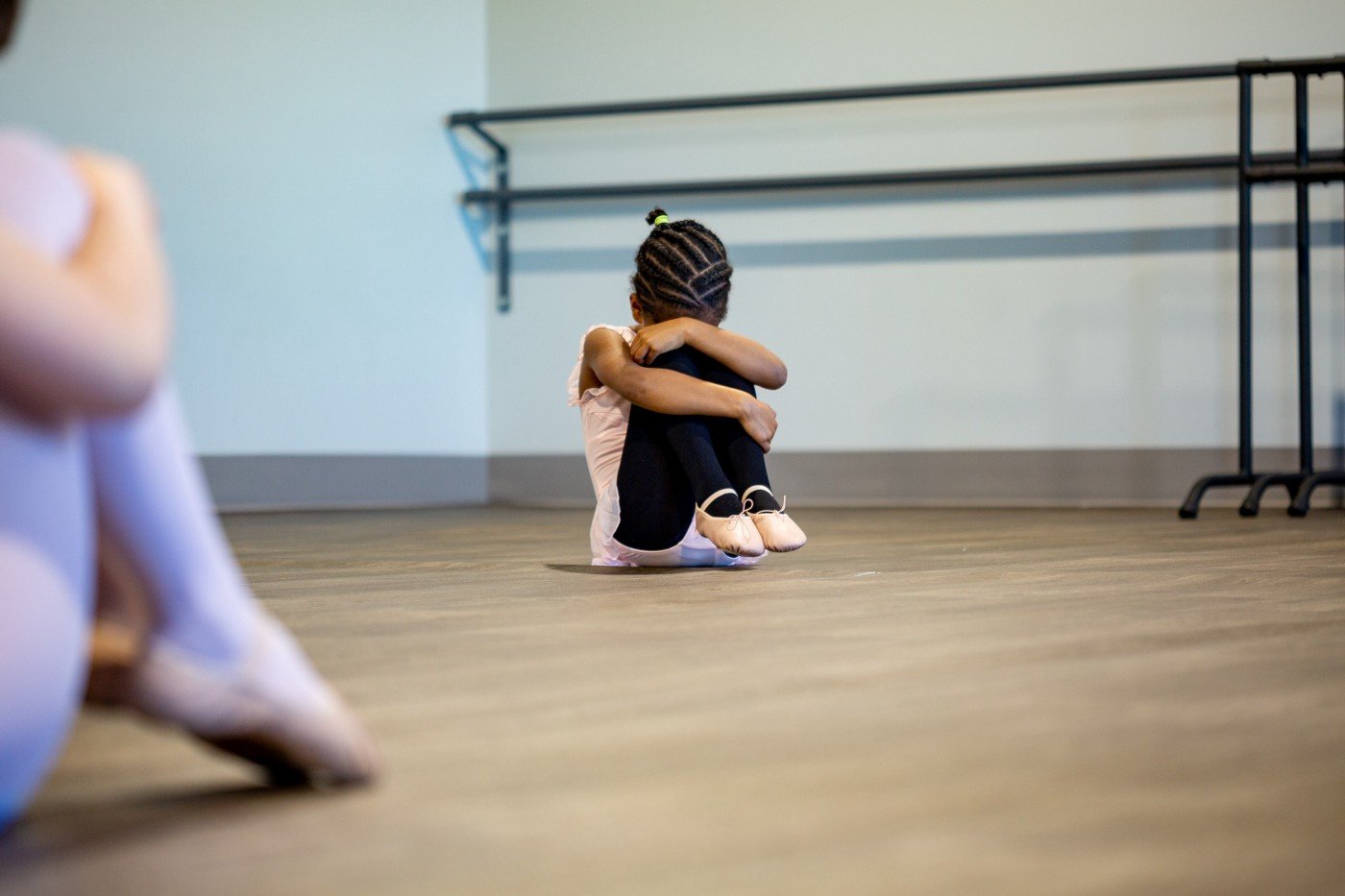These 5 Questions Help You Tell the Difference Between Anxiety Disorders and Worry

As a parent, it can be difficult to determine when your little one needs professional help to cope with their anxiety. Is their worry situational and something you can help them through? Or, is it something that seems to be consuming them every day?
Thinking through this decision can feel like a lot, and understandably so. Try organizing your thoughts by asking yourself a few questions.
1. What behaviors are worrying me?
Make a list of some behaviors you’ve noticed lately that are worrying you and be specific about what’s happening and when it’s happening.
Instead of saying “he cries all the time”, try saying “he tends to cry in the mornings before school”. You want to make sure you aren’t generalizing the behaviors that concern you.
Listing out specific behaviors can help you and a professional determine if your child truly needs professional help because, let’s be honest, every kid has their worries, their moody days, and their tantrums.
2. How often and intensely does my child experience this behavior or emotion?
If your child is experiencing anxiety, nervousness, or worry every day on a consistent basis, there’s a chance they could have an anxiety disorder. Frequency can help professionals rule in or out an anxiety disorder. Like the previous question, make sure your responses are as specific as possible.
In addition to noting how often their behaviors occur, try gauging the intensity of their behaviors against the situation that caused it. Did it seem like an extreme reaction to a small problem? This can help you determine whether you should seek help for your child.
3. Are these behaviors typical for my child’s age?
It’s normal, and pretty harmless, for a kid to feel nervous before a big game or get a stomach ache before an important test because they’re situationally anxious. It happens. And on most occasions, help and support from an adult (parent, teacher, etc.) can help ease those nerves.
However, it can be tough to differentiate an anxiety disorder from situational anxiety in your kid. The line may be fine, but that doesn’t make it easy to find. If your kid continues to have anxious symptoms even with help from adults in their lives, this could be a sign of an anxiety disorder.
4. How long has my child been experiencing this behavior or emotion?
If these odd behaviors have only been happening for a week or two, chances are your child is having some situational anxiety. Luckily, this can go away in due time. They could just be worrying about a past or upcoming moment in their life. However, if this is a consistent behavior that you’ve noticed over a long period of time, it might be a good idea to get a professional opinion.
5. How much is this behavior interfering with my child’s life?
When deciding whether you should seek professional help for your child’s anxiety, this will be one of, if not the, most important question to ask. According to Cleveland Clinic Pediatrics, “anxiety becomes a problem when it disrupts the child’s normal activities”.
Say your kid is so anxious at school that they feel sick and have to be picked up; that’s a sign that their anxiety is becoming a problem. Or maybe their anxious behaviors are so severe that they’re having trouble making friends. If their anxiety is impacting their day-to-day life, it’s time to reach out to a professional.
Take a deep breath; do it right now.
The thought of your little one struggling in any way is scary, but one of the best things you can do for both yourself and for them is try not to stress. Easier said than done, no doubt. Trust your intuition, and if need be, trust your professionals! They’re there to help make your lives a little easier.
To learn more about How to Explain Anxiety to Your Child, check out maro parents.
Works cited:
ADAA, or The Anxiety Disorders Association of America “is an international nonprofit organization dedicated to the prevention, treatment, and cure of anxiety, depression, OCD, PTSD, and co-occurring disorders through the alignment of science, treatment, and education”. Anxiety Disorders in Children. Retrieved from https://adaa.org/sites/default/files/Anxiety%20Disorders%20in%20Children.pdf
The Cleveland Clinic is “a nonprofit multispecialty academic medical center that integrates clinical and hospital care with research and education”. Your Child’s Anxiety: When to Worry, When to Relax. Retrieved from https://health.clevelandclinic.org/your-childs-anxiety-when-to-worry-when-to-relax/

